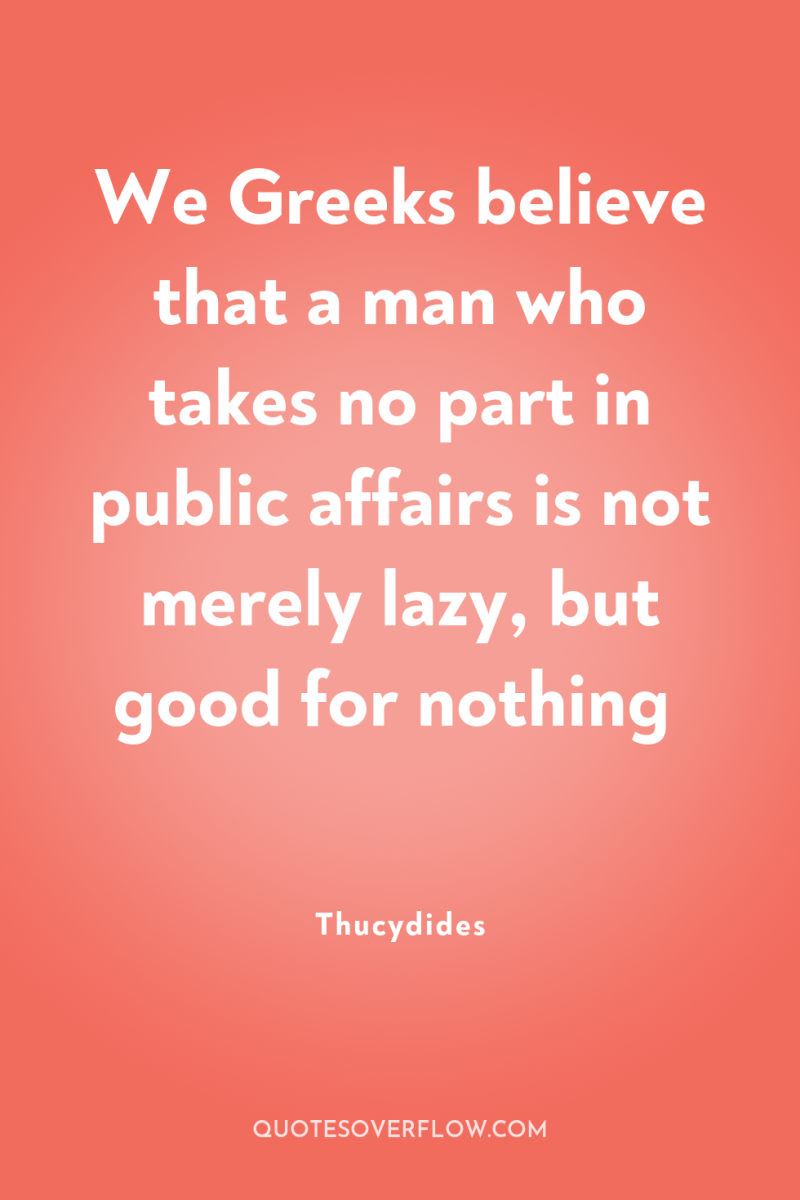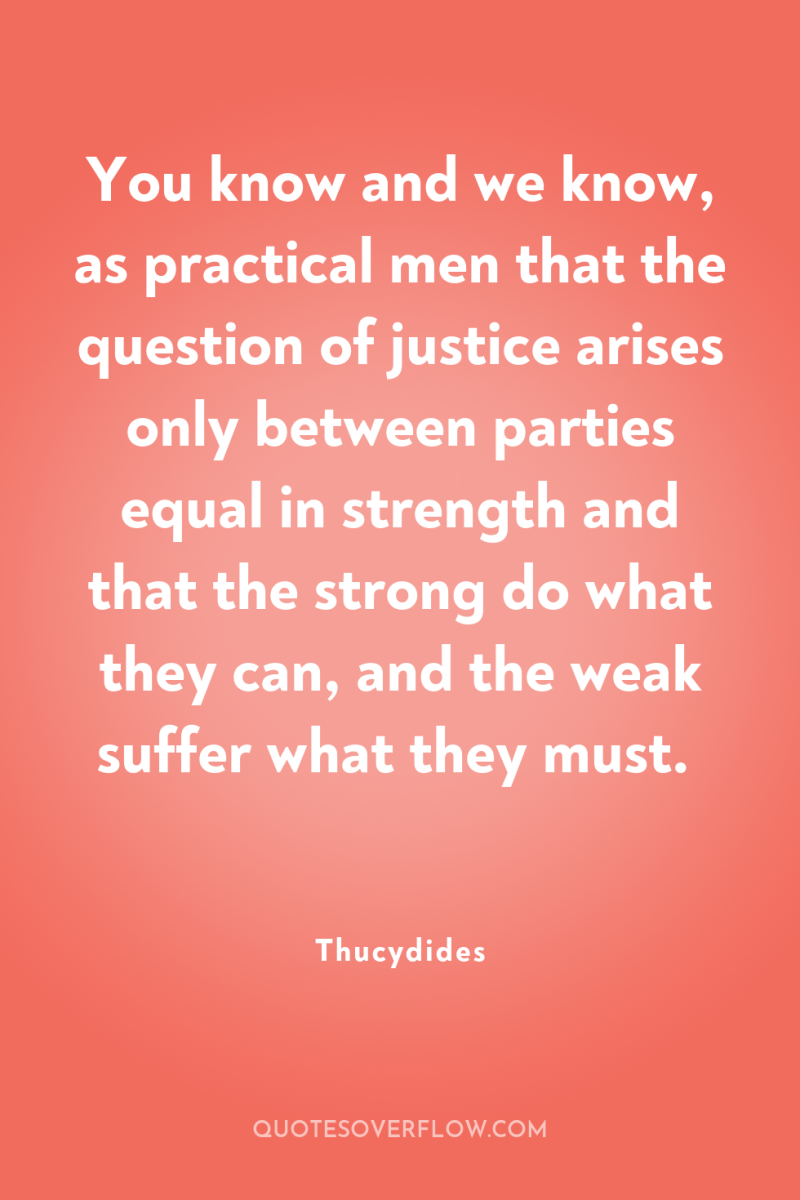
1
We Greeks believe that a man who takes no part in public affairs is not merely lazy, but good for nothingThucydides
2
For the whole earth is the tomb of famous men; not only are they commemorated by columns and inscriptions in their own country, but in foreign lands there dwells also an unwritten memorial of them, graven not on stone but in the hearts of men. Make them your examples, and, esteeming courage to be freedom and freedom to be happiness, do not weigh too nicely the perils of war."[ Funeral Oration of Pericles] .Thucydides

3
You know and we know, as practical men that the question of justice arises only between parties equal in strength and that the strong do what they can, and the weak suffer what they must.Thucydides
4
The absence of romance in my history will, I fear, detract somewhat from its interest, but if it is judged worthy by those inquirers who desire an exact knowledge of the past as an aid to the understanding of the future, which in the course of human things must resemble if it does not reflect it, I shall be content. In fine I have written my work not as an essay with which to win the applause of the moment but as a possession for all time.Thucydides
5
Right, as the world goes, is only in question between equals in power, while the strong do what they can and the weak suffer what they must.Thucydides
6
Self-control is the chief element in self-respect, and self-respect is the chief element in courage.Thucydides
7
I think the two things most opposed to good counsel are haste and passion; haste usaully goes hand in hand with folly, passion with coarseness and narrowness of mind.Thucydides
8
Indeed it is generally the case that men are readier to call rogues clever than simpletons honest, and are ashamed of being the second as they are proud of being the first.Thucydides
9
People are inclined to accept all stories of ancient times in an uncritical way -even when those stories concern their own native counties... Most people, in fact, will not take trouble in finding out the truth, but are more inclined to accept the first story they hear.Thucydides
10
Mankind are tolerant of the praises of others as long as each hearer thinks that he can do as well or nearly as well himself, but, when the speaker rises above him, jealousy is aroused and he begins to be incredulous.Thucydides
11
Men's indignation, it seems, is more exited by legal wrong than by violent wrong; the first looks like being cheated by an equal, the second like being compelled by a superior.Thucydides
12
You know well as I do that when we are talking on the human plane, questions of justice only arise when there is equal power to compel: in terms of practicality the dominant exact what they can and the weak concede what they must. (Said by Athenian envoy to the Melians)Thucydides
13
In a democracy, someone who fails to get elected to office can always console himself with the thought that there was something not quite fair about it.Thucydides
14
Difficulty of subsistence made the invaders reduce the numbers of the army to a point at which it might live on the country during the prosecution of the war.Thucydides
15
It is frequently a misfortune to have very brilliant men in charge of affairs. They expect too much of ordinary men.Thucydides
16
In practice we always base our preparations against an enemy on the assumption that his plans are good; indeed, it is right to rest our hopes not on a belief in his blunders, but on the soundness of our provisions. Nor ought we to believe that there is much difference between man and man, but to think that the superiority lies with him who is reared in the severest school.Thucydides
17
We secure our friends not by accepting favors but by doing them.Thucydides
18
They are surely to be esteemed the bravest spirits who having the clearest sense of both the pains and pleasures of life do not on that account shrink from danger.Thucydides
19
Men naturally despise those who court them, but respect those who do not give way to them.Thucydides
20
Be convinced that to be happy means to be free and that to be free means to be brave. Therefore do not take lightly the perils of war.Thucydides
21
History is Philosophy teaching by example.Thucydides
22
The secret to happiness is freedom... And the secret to freedom is courage.Thucydides
23
Ignorance is bold and knowledge reserved.Thucydides
24
Wars spring from unseen and generally insignificant causes, the first outbreak being often but an explosion of anger.Thucydides
25
Men's indignation, it seems, is more excited by legal wrong than by violent wrong; the first looks like being cheated by an equal, the second like being compelled by a superior.Thucydides